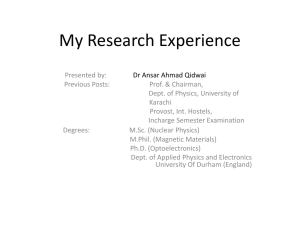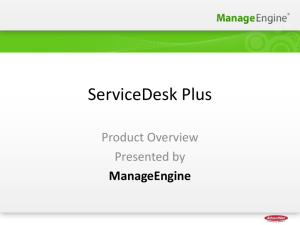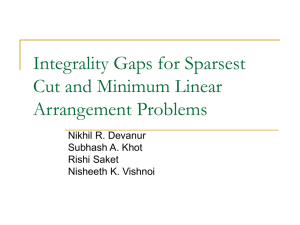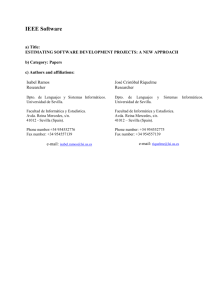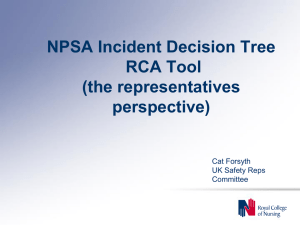Head Start Challenges - Philadelphia Public School Notebook
advertisement
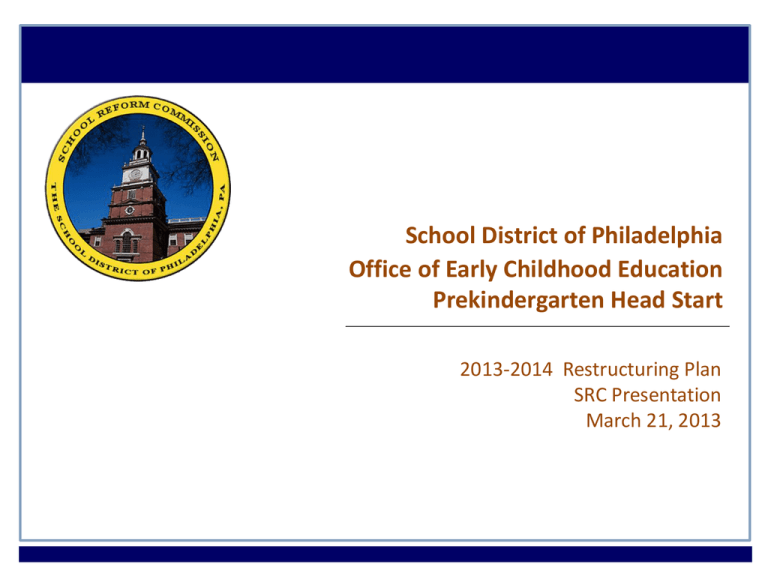
School District of Philadelphia Office of Early Childhood Education Prekindergarten Head Start 2013-2014 Restructuring Plan SRC Presentation March 21, 2013 1 Office of Early Childhood Mission Provide high quality, comprehensive, developmentally appropriate programs and services for children from birth to age six Ensure that every child in Philadelphia is safe, healthy, and arrives to school ready to learn and succeed 2 Head Start Challenges Costs to administer in District have risen annually (22% since FY08) Contractual obligations result in annual compensation increases that exceed any annual increase in grant funds increased cost of District retirement benefits indirect costs attributed to program budgets, compliance, and administration Actual grant revenue has remained level (incremental increases in federal funding and incremental decreases in state funding) Federal Title I funds are decreasing Budgeted revenue from Title I increased 173% from FY08 to FY13 Title I funding comprises 26% of budgeted Head Start revenue District Title 1 funding is decreasing substantially in FY14 3 Head Start Funding Trends Millions PKHS Funding Trend FY05 - FY13 $80.0 $68.5 $70.0 $60.0 $54.1 $47.8 $50.0 $43.4 $40.0 $56.0 $58.2 $61.5 $62.7 $10.7 $11.9 $58.9 $17.9 $6.5 $8.9 $8.5 $5.1 $12.8 $12.8 $12.6 $12.6 $12.3 $12.3 $11.8 $2.7 $3.0 $4.4 $8.7 $36.1 $36.5 $36.1 $36.7 $36.7 $37.8 $38.5 $38.5 $38.8 2004/05 2005/06 2006/07 2007/08 2008/09 2009/10 2010/11 2011/12 2012/13 $30.0 $20.0 $10.0 $Fed HS Grant HSSA Grant Title I - Budgeted PKHS Program Budget 4 Head Start Funding Sources FY13 Federal Head Start Grant: $38,791,271 to serve 4,896 children Head Start State Supplemental Grant: $11,773,768 to serve 1,286 children District Title I Federal Funding: $17,892,127 to supplement implementation cost 5 Cost Per Child 2013/2014 The cost to serve a child at a partner’s site is substantially lower than the cost to serve a child in a District-run classroom. District Classroom Partner Classroom $11,700 $8,300 Proposed Average Per Child Cost for FY14 6 Projected Budget Gap with No Restructuring Millions PKHS Budget Projection FY14 - FY18 $90.0 $80.0 $70.0 $60.0 $70.6 $68.5 $- $72.9 $75.2 $77.4 $79.7 $18.4 $11.6 $16.1 $20.7 $13.8 $8.5 $8.5 $8.5 $8.5 $8.5 $11.8 $11.8 $11.8 $11.8 $11.8 $11.8 $38.8 $38.8 $38.8 $38.8 $38.8 $38.8 2012/13 2013/14 1213/14 2014/15 2015/16 2016/17 2017/18 $17.9 $50.0 $40.0 $30.0 $20.0 $10.0 $- 20 Fed HS Grant HSSA Grant Title I - Budgeted GAP PKHS Program Budget 7 Head Start Funded Enrollment Distribution 7000 6000 1621 1568 1568 1567 4661 4695 4695 4672 2007/08 2008/09 2009/10 2010/11 1782 1830 4457 4352 2011/12 2012/13 5000 4000 3000 2000 1000 0 SDP sites Partner sites 8 Current Actual Funded Enrollment 2012-2013 Delivery Model Federal Grant State Grant Total SDP 3,942 410 4,352 Partners 954 876 1,830 Total 4,896 1,286 6,182 9 Impact if No Additional Partner Slots Added in FY14 Head Start currently serves 6182 students: 4,352 in District and 1,830 partner programs If District and partner ratio was maintained at the projected reduced funding levels, 500 fewer students would be served This service reduction would be a tremendous loss to the children, families and communities in the City of Philadelphia Reducing number of slots could jeopardize Federal Head Start grant 10 Opportunities To Improve Quality PreK Access Maintain and increase number of slots by providing service through partners Improve access across all geographic areas by partnering with agencies in underserved areas Increase the number of slots at partner’s centers that offer before and after care (beyond the Head Start program hours) and have care available during the summer. Increase the number of slots at partner’s centers that offer culturally and linguistically appropriate services. 11 Head Start Restructuring 2013-2014 The Office of Early Childhood Education developed a plan to restructure the Prekindergarten Head Start program to address immediate and long-term funding challenges while maintaining highquality Prekindergarten programs The Office of Early Childhood Education will shift slots from: Programs in school buildings closed or impacted by Facilities Master Plan Closing programs in leased facilities, for additional cost savings Moving programs from other non-District facilities (i.e., Renaissance Charters) The restructuring will include greater usage of high-quality, community-based partner agencies to provide a larger proportion of the Head Start program Approximately 60% of the Prekindergarten Head Start program will be delivered through Keystone Star Level 3 or better community partners in 2013-2014 12 Letter Naming Fluency (LNF) – SDP & Partners 2009-2011 80% 75% 72% 72% 72% 70% 64% 58% 60% 50% At Risk Some Risk 40% Low Risk 30% 21% 20% 13% 15% 13% 15% 13% 15% 15% 11% 14% 14% 14% 10% 0% LNF - 2009 - SDP LNF - 2010 - SDP LNF- 2011 - SDP LNF- 2009-Partners LNF- 2010-Partners LNF- 2011-Partners 13 Initial Sound Fluency (ISF) - SDP & Partners 2009-2011 70% 62% 60% 60% 58% 56% 56% 53% 50% At Risk 40% Some Risk 30% 20% 19% 21% 23% 22% 21% 21% 23% 24% 21% 23% 22% Low Risk 17% 10% 0% ISF - 2009 - SDP ISF - 2010 - SDP ISF- 2011 - SDP ISF- 2009 -Partners ISF- 2010 -Partners ISF- 2011-Partners 14 Maintaining Quality Through Partner Selection Process Seeking additional high-quality partners through a Request for Qualifications (RFQ) process to further increase the number of slots at community based partners Issued Request for Proposals (RFP) to identify partners to provide services in District-owned early childhood centers 15 Maintaining Quality through Partner Selection Process Keystone Star Level 3 or better State monitored quality rating system Star rating scale: Star Levels 1-4 All teachers must meet the qualifications outlined in the Head Start Act 2007: Teachers must have a BA in Early Childhood Education or other related field Teacher assistants must have a Child Development Associate Each site must undergo a quality assurance site visit which includes a classroom observation, health and safety assessment, and an internal systems check 16 Partner Support and Oversight The Office of Early Childhood Education will provide oversight and support to partners through teams Professional development Field Administrator/Education Coordinator Instructional Specialist Special Needs Coordinator Social Worker Nutrition Field Representative Nurse 17 Stakeholder Communication Parents Partner Agencies Office of Head Start (Region III) Office of Child Development and Early Learning (OCDEL) Head Start Policy Council City Council Foundations Universities School Reform Commission School District Leadership and Staff Mayor’s Early Learning Advisory Council (MELAC): Office of Health and Opportunity, Department of Public Welfare, Department of Licenses & Inspections, Philadelphia Citizens for Children and Youth, Public Health Management Corporation, Department of Behavioral Health, Delaware Valley Assn for the Education of Young Children, United Way, and YMCA 18 Restructuring Timeline Request For Qualifications (RFQ) Evaluate and identify qualified partners - April 15, 2013 Finalize allotment to new partners – May 1, 2013 Request For Proposals (RFP) Bidder’s Conference- March 27, 2013 Closes April 12, 2013 Evaluate and identify qualified partners – April 26, 2013 Finalize allotment to partners – May 13, 2013 Finalize 2013-14 PreK locations – May 28, 2013 Parent Notification for location selection- May 28, 2013 19

